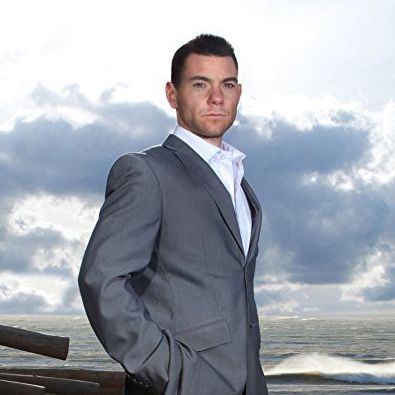
Establishing Calorie and Macronutrient Goals
In this article, I am going to cover calculating an appropriate calorie target as well as calculating some macronutrient goals.
Calculating Calories
Firstly, tracking calories and following caloric goals is not for everyone. Some people can focus more on behaviour and habit changes to bring about changes in energy consumption, others might want to use more visual portion guides, such as a fist of this, a palm size portion of that.
We are going to focus on those that are prepared to accurately track what they are consuming. You can do this using apps like MyFitnessPal with relative ease these days.
The first thing you want to consider is, what is your goal. Fat/weight loss, muscle gain, fat loss and muscle gain, performance etc. Where you sit in terms of your goal, will dictate what you are going to do with your calories.
Once you have decided this, there are one of two options I would then go with.
Number 1, Track what you currently do and the results you are getting. Typically, this might take a good 2-4 weeks of tracking current habits and results. After that time, you can look at the area you are trying to improve and how you are getting on.
For example, let’s say your goal is fat loss and after 3 weeks of tracking your training, calories and body composition your fat levels are exactly the same. Your average calorie intake during that time becomes your total energy expenditure (TEE). You can then choose to adapt your calorie goal from there. Perhaps you might drop it by 500kcals on average per day and then track again for a further 1-2 weeks and see what results you are getting. Using this method, you are led more by your results and goal intentions.
The second option would be to use basic calculations to try and calculate an appropriate goal for you.
Firstly, use an online Basal Metabolic Rate (BMR) calculator. This helps to find a predicted level of energy you use if you were to effectively do nothing all day.
Next, use an online total daily energy expenditure (TEE) calculator, such as a Harris-benedict calculator. Based upon certain equations relating to your current activity levels this will provide a goal maintenance calorie target.
Adjust this target based upon your current body composition. In general, I find that these equations are somewhat accurate the closer to optimal your body fat percentage is.
For males that might be below 15% and for females below 30%. If you are overfat, then it might be better to use a goal bodyweight rather than your current bodyweight and work from there.
Once you have your predicted total daily energy expenditure you can adapt your calories in accordance with your goals. For more aggressive fat loss you might target 500-1000kcal on average per day, although I don’t like to go consistently below your resting metabolic rate level.
For a more subtle fat loss where you are also focused on muscle maintenance or even gain, a 250-500kcal on average per day deficit. Muscle gain focus only, you would look to come in at that maintenance or above that level.
Calculating your Protein Goal
A protein goal is typically the first and sometimes only macronutrient I will provide a goal for after calculating caloric requirements.
I typically look at 3 areas:
- What is your body composition goal? Increased focus on weight loss and thus a calorie deficit would lead me to recommending on the upper range for a protein intake to help protect against muscle loss and support meal time satiety. When calories are higher, carbs and fats are generally higher, and this can be protein sparing, therefore you may not need the upper range for protein intake when in more of a maintenance or surplus phase.
- How much activity are you doing? The more activity you do, the higher the protein demands, therefore the higher the protein goal should be.
- Are there any underlying health conditions or circumstances that would be contraindicated by a high protein diet, such as pre-existing kidney issues, gout, pregnancy, certain cancers etc.
If you have a pre-existing condition work with a professional on a 1-2-1 basis.
Assuming there are no underlying health concerns that would limit protein intake, here is how you can calculate your protein goal.
For sedentary individuals that have no focus on body composition, a protein intake could be in the range of 1.0-1.5grams per kg of bodyweight. For me, this is the low range of the spectrum for protein intake. Minimum daily requirement of protein is said to be 0.8g per kg of bodyweight. However, you probably are not reading this article because you want to avoid a protein deficiency.
For those who are highly active, in a deficit and focused on fat loss, the range might be more like 1.8-2.5 grams of protein per kg of bodyweight.
For active individuals not in a deficit, a protein target of 1.5-2.2grams per kg of bodyweight is a good range.
Further considerations
- If you are overfat (above 20% body fat for men and above 35% body fat for females), calculate your numbers using your optimal bodyweight and not your current weight.
- Those on plant-based diets may find reaching these numbers a bit more challenge. You may find the lower bound range from what I have provided is achievable and you may rely a little more heavily on supplementation to meet needs.
Carbohydrate Intake based upon activity demands
Carbohydrate intake can vary significantly from one person to another. One of the biggest factors is the volume, type, and frequency of exercise you do.
I’m going to keep this relatively basic to make it as accessible and easy to follow as possible. Obviously more significant individualisation can be bought to this based upon an individual’s health and body composition goals and a detailed understanding of someone’s activity demands.
Please note that the carbohydrate goals that I provide are based upon net carbs and not total carbs. Net carbs are your total carbs minus the fibre. I do this because fibre does not provide any tangible calories or carbohydrates for the body.
- For those of you performing two of less training sessions per week, aim for an average carbohydrate intake of 1-3grams of carbohydrate per kg of bodyweight.
- For those performing 3-5 training sessions per week, which is a large majority of the active population, your target is simple, 3-5grams per kg of bodyweight.
- As we venture into those that exercise 6-7 days a week, I would aim for 5-7grams per kg of bodyweight.
- And lastly, those that are training most days and perhaps performing double sessions on some days or sessions that are of significant length 2-4hours or more at a moderate to high intensity, may want to aim for as high as 7-10grams per kg of bodyweight per day.
As you hit those higher numbers, you are undoubtedly talking about the inclusion of more simple and supplemental forms of carbohydrates as part of meals and as part of pre, intra and post workout nutrition.
Be sure to run some of your own calculations if interested in seeing what you range might be. Then be flexible with that number, observe your bodyweight and performance levels to get an idea of whether that number is working for you. If after a week your weight has dropped 1-2kg and you are feeling tired, especially when trying to exercise, chances are you are shooting too low with your carb intake and you are becoming glycogen depleted.
Calculating your daily fat intake goal
When it comes to fat intake goals, it really can be as simple as the following:
- Calculate your calorie target
- Calculate what your protein goal is going to be and what number of calories that provides
- Calculate your carbohydrate goal based upon activity demands and what number of calories that provides
- Minus the calories that the protein and carbs provide from your total calorie goal. Whatever you have left, divide by 9 as this is the number of calories per gram of fat, and this gives you your fat goal in grams
Beyond this, I like to provide limits that I would go to so that health and performance is not being compromised. The way I calculate this is someone’s fat free mass in kg and then that provides the number in grams. Fat free mass is just your total weight minus any body fat weight.
Setting up your calorie and macro goal (an example)
Let’s try and bring some life to what I have written above.
Take Average Joe, he’s 40 years old, 6ft, 80kg and trains 3-5 x per week of a moderate to high intensity and reaches around 8-10 thousand steps per day. He currently comes in at 20% body fat. His goal is fat loss but not at the expense of performance or muscle mass.
His BMR comes in around 1800 calories per day and based upon his current movement we predict his total energy expenditure to be more like 2700. We want a tangible deficit to support fat loss but not too aggressive that he sacrifices performance, so we go with a predicted 500kcal a day deficit.
Let’s take a closer look.
- His calorie goal is now 2200,
- His protein goal is 160grams (2grams per kg of bodyweight), which is 640 calories
- His carb goal is 240grams (3grams per kg of bodyweight), which is 960 calories
- We have a total of 1600kcals coming from protein and carbs, leaving us with 600kcals for fats. 600 divided by 9 means the fat goal is 67grams
As average Joe is 80kg at 20% body fat, my lower limit for a daily fat goal would typically be 64g, as his fat free mass is 64kg.
As he has strong performance goals as well, I don’t want to sacrifice his proteins or carbs, so I keep him in a range that is still suitable for the amount and type of training he is doing.
I hope you found this article helpful in establishing some calorie and macronutrient targets for yourself.
For those of you looking to get an extra bump in performance and recovery as well as supporting your protein targets, check out PFORM Active and PFORM Restore. Both have been developed to work with one another and to maximise your athletic capabilities as well as your ability to recovery and reset ready for the next session.















